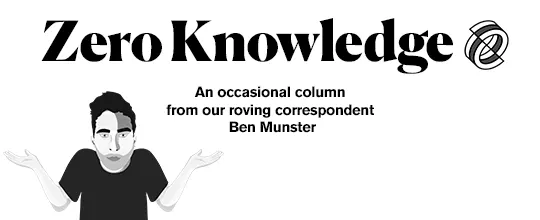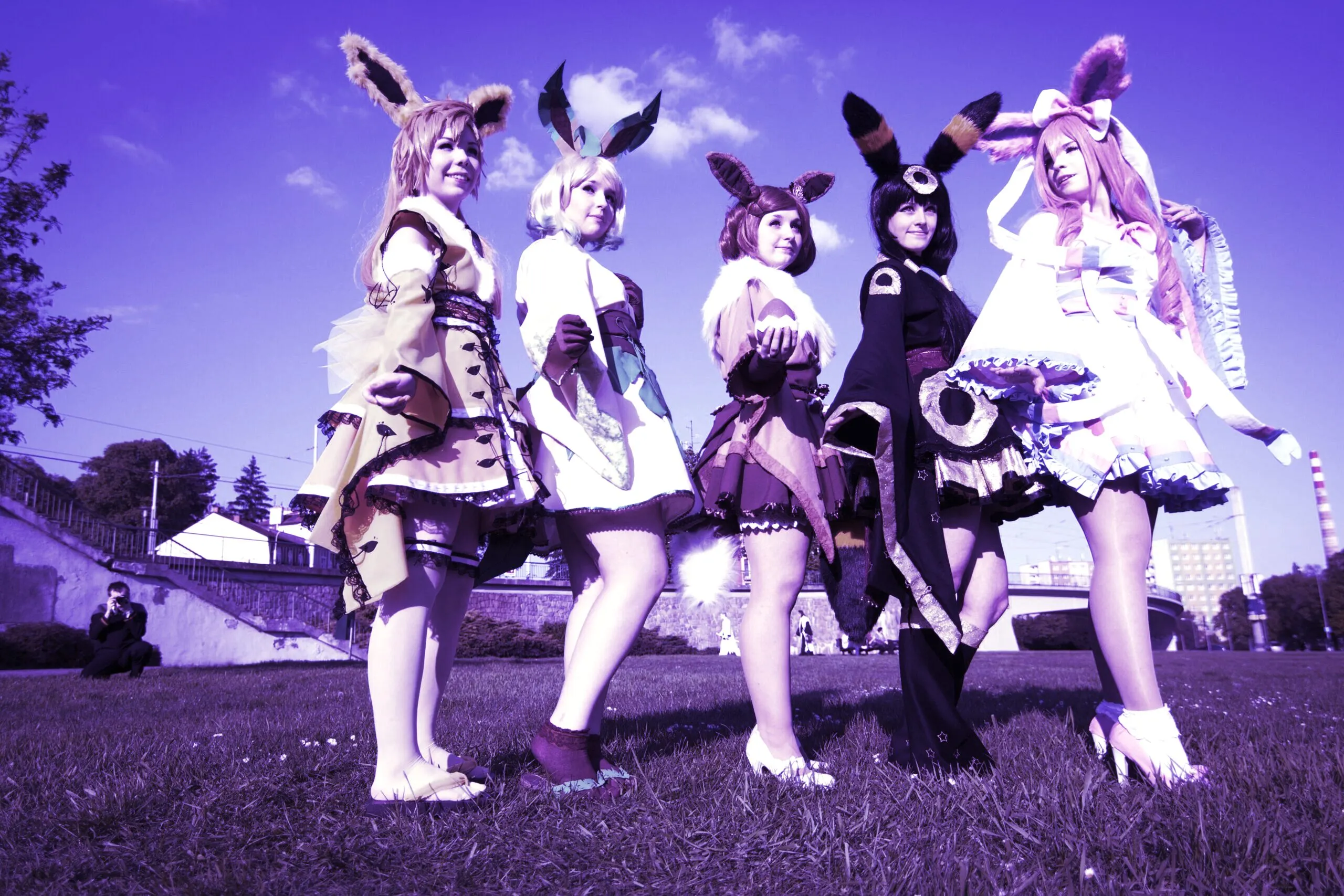
When, earlier this year, executives at an Ethereum project called Arbitrum joined a business call with a buzzy new investment firm, they didn’t mind that one of the firm’s partners was using a filter to make him look like a cat. (Yes, just like that viral video, but different!) Arbitrum’s delegates, according to people at the meeting, treated the cat as a valued and respected business partner, and proceeded as if nothing was off.
Indeed, it was ultimately the cat who made the final call—and decided not to invest!
The “cat” is the pseudonymous identity of “CL,” a popular crypto trader who is a member of eGirl Capital, a recently established investment firm that is staffed and run almost entirely by anonymous cartoon characters.
It is a new kind of business, one that eschews IRL credentials over social media popularity, and its progress hasn’t suffered in the least for it. “These days, you don’t really need to suit up and boot up to be taken seriously,” said another of eGirl’s partners, a guy who goes by Loomdart, who at the time of our interview identified online as a depressed-looking blue duck thing swaddled in toilet paper. (He has since changed his profile picture to a cat with a blueberry nose and blueberry head.) “We have equal footing now. People are more appreciative of actual value—people’s usefulness and skills.”
With all the crap about the impending “metaverse” forcing people to think about the merits of a life that is purely online, eGirl Capital offers a kind of case study: the firm is run by 13 full-time anons and two “doxxed” individuals, i.e., people who choose to share their real identities online. It is a kind of supergroup, in a way, made up of wildly rich Crypto Twitter personalities.
— loomdart 🫐 (@loomdart) November 16, 2021
Despite eGirl’s unusual structure for a VC firm—its partners don’t take any money from outside investors, preferring to spend the money they previously made trading shitcoins—it has made some impression in the crypto VC world, having invested up to $10 million, according to CL (the cat, lol), in a range of serious projects, including DeFi protocol Alchemix and NFT project Unisocks. Just this month, eGirl participated in a $7.5 million round led by the colossal Polychain Capital.
Most of eGirl’s investments are still in their early stages, so it's too early to talk of any legendary exits. But people are taking eGirl Capital seriously.
As they well should!
It began as a literal joke, in 2019, when CL photoshopped a real life press release announcing a funding round to include an obviously fictional firm, “eGirl Capital,” alongside the actual investors listed. (An “eGirl” is an exaggerated persona adopted by a woman online, often for the purpose of titillating a fanbase of pathetic “simps.”) Within months, as a continuation of the joke, a group of friendly Crypto Twitter traders decided to form an eGirl Capital group chat. Quickly, the chat grew to include various veteran traders who had interacted on Twitter, including Mewny, whose online avatar resembles the Pokémon Ditto, transformed into a sofa; Hedgedhog, who roleplays as Sonic the Hedgehog; and DegenSpartan, a Hentai fanatic. The chat proved so successful—or fun, or whatever—that Eva Beylin, an influential figure in Ethereum and one of eGirl Capital’s three “doxxed” members, went on to incorporate eGirl as a real company, eGirl Capital, LLC, in her name, “somewhere in the Caribbean.”
Before long, eGirl was appearing on real industry press releases, including the announcement of Defi protocol Alchemix’s $4.9 million raise earlier this year, which was “led by 10 investors, including industry mainstays CMS Holdings and Alameda Research, as well as upstart crypto VC players such as eGirl Capital.”
From the start, eGirl pursued an unusual investment strategy that was more suitable to a group of internationally dispersed anons. Beylin, who jokingly identifies as one of eGirl’s few real life eGirls and has occasionally served as the collective’s IRL spokesperson, explained in an interview that eGirl partners see themselves more as angel investors than VCs; when a partner wants to invest in a project, they’ll pool the money of other interested partners, then later return a portion of the profits. (So, when CL didn’t invest in Arbitrum, others did.) When it comes to trading, members are left to their own devices, and Beylin can’t even say for sure how much money eGirl has invested. Sometimes they invest in equity but mostly they buy crypto assets: tokens and NFTs. They are also considering moving into a decentralized ownership arrangement, or DAO.
The firm’s initial run of success appears to have cemented and validated the anon identities of its core members, who live their pseudonymous personas not as a kind of perennial in-joke but with complete sincerity, to the point where you have to ask whether the word “anonymous” even fits anymore.
For instance, Loomdart (who reveals by phone only that he is in his twenties and lives in Norwich in the UK), makes a clear distinction between himself and the aforementioned “doxxed”—those who have willingly volunteered their birth names, as if that’s some kind of credulous, anachronistic thing to do. He actually tried using his real name when he attempted to get into the Bitcoin Miami conference earlier this year—and was promptly refused entry. “They didn’t recognise me,” he said. “But then I was like, ‘Oh, I’m Loomdart, and they were like, ‘Let him through!’”
Depending on their proximity to crypto, entrepreneurs give differing opinions as to whether they’d let a group of cartoon characters invest in their business. Josh Quittner, the money-grubbing “CEO” of Decrypt, whinnied, “Ask them if they’d invest in Decrypt! I’d take their money!” (On the other hand, Decrypt EIC Dan Roberts fretted via Slack, “Are you sure this investment firm actually exists, and this column won’t humiliate us?” To which I could offer no guarantees.)
Others noted their successful exploitation of Twitter fame, a technique used by many regular VCs, too. “I know some of those guys,” said Kyle Samani of the crypto fund Multicoin Capital, adding that anon companies are probably the wave of the future. “They’re cool.” Joey Krug, of the large Pantera Capital, which has been part of several deals involving eGirl, echoed the sentiment. “As long as they’re a value-add to companies, that’s what matters most as an investor,” Krug says. “As opposed to what names they choose to call themselves.”
Those who have worked directly with eGirl were generally supportive. Riccardo Spagni aka Fluffypony, of the eGirl portfolio project Yat, said he was a fan of the collective. As did Simon Harman, the founder of an early stage startup called Chainflip in which eGirl bought a minor stake earlier this year, trading tokens for the stablecoin USDC instead of equity for dollars. “In terms of the anon aspect of it, eGirl has people behind them like any other company,” said Harman. “I happen to know one of the prominent members personally. Being anon is more about social contracts rather than actual anonymity.”
Still, there is some inevitable wariness on the part of the so-called legacy business world, which eGirl’s partners have expressed an eagerness to reassure. “eGirl acts like most other crypto firms, they can get away with otherwise outlandish branding and communication because everyone in the space has a joint understanding of the culture,” Harman said. “I don't think 90 percent of crypto firms of all kinds would last a week in traditional markets.” Adamo Dagradi of Milkman, a European logistics startup, said he’d be “nervous to work for someone who hasn’t got a face.”
But then, you might ask, why would eGirl want to invest in traditional companies anyway? You could argue their anonymity is just the elaboration of a longstanding tradition within crypto—the most famous cryptocurrency of them all, lest we forget, was invented by an anon….
Is it the future? Cartoon characters mingling with humans, all bound by a shared passion for high-octane derivatives trading? Perhaps adopting some kind of decentralized autonomous organizational legal structure, too? Can anons ever be recognized as valid without having to “dox” their hated IRL identities?
“We’re anon but our anon identity has a whole history,” argued Loomdart, in impassioned defense. “People assume if someone’s anon they must have something to hide, and if someone’s doxxed it must mean you can trust them. But… I’ve been in crypto for seven years and I tell you it’s the complete opposite. I can’t remember the last time I’ve been scammed by someone who wasn’t doxxed. There’s 7 billion doxxed people in the world!”
Perhaps the fact that pixelated cats and MS Paint stick figures are now major players in early-stage startup financing is a sign that the financial industry is in a slightly weird place. The space is starting to look like the Tooniverse of “Who Framed Roger Rabbit,” a kind of crossover between two perpendicular realities, one populated by humans and the other by brightly colored cartoon characters.
At the same time, it gels with the general thrust of what the crypto industry has already made clear. Value is value, money is money, and a diminishing few will say no to a big cash injection, no matter what form it takes—whether it’s the dollar, Bitcoin, dogecoin, pisscoin, or a Series-B round financed by a Pokémon.







